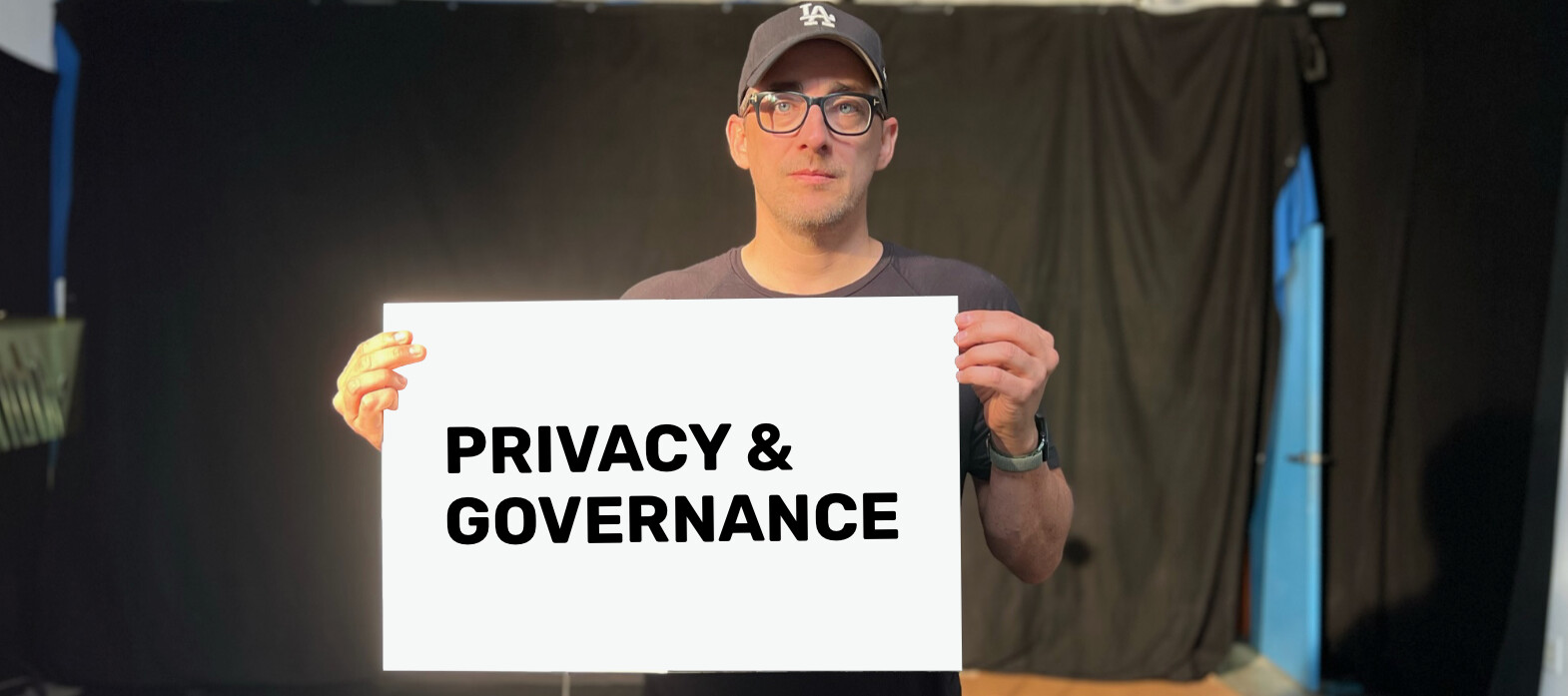
Privacy & Governance
This is a proposal to balance being publicly traded and working on confidential projects. With a little time-based criteria and by utilizing the Board of Directors, we can institute a policy that makes it clear when and how projects are undertaken and shared with the community.
New Privacy & Governance Policy
When confidentiality is required, new projects will fall into one of three categories based on expected time commitment:
Mike Alone – If the project is small in scope (5 hours a week or less for no more than a month), it can be undertaken without oversight. Disclosure is required once the project becomes public.
Board Oversight – If the project is expected to involve 5 to 10 hours a week and/or continue for a week or longer, Mike will notify the Board of Directors and keep them updated until the project can be disclosed publicly.
Coded Disclosure – If the project requires more than 10 hours a week but cannot yet be made public, full details will be given to the Board. A project codename (e.g., Project POLARIS) will be used to disclose its existence to shareholders until full public disclosure is possible.
Read the full proposal here — it includes background, rationale, and practical examples.
🗳 Voting Options
Yes – Adopt the proposed protocol, which uses expected time commitment to determine governance routing (Mike Alone, Board Oversight, and Coded Disclosure).
No – Do not enact any changes. Things are working fine and we can continue relying on Mike’s personal discretion in managing confidential projects.
Revise – Support the idea of formal governance for confidential projects, but recommend adjustments to the proposed protocol. (Please explain in comments.)
Note: terms updated based on shareholder feedback
24 users voted with 5051 shares
my suggested revisions:
Missing the abstain option?
I think the hours-per-week is the wrong metric without a “how many weeks” or some other scope container.
You do a little one-off project for two weeks, that’s under 5 hours per week would be different than “a year long project taking 1/8th of my working hours” kinda thing.
I agree with Pat here, in that basically an hours-per-week metric doesn't (to me) communicate the net size of the project. Having said that, I think the core thing here that is kind of unsaid is that "SECRET PROJECTS" are almost always secret within some set of time (in my experience less than a year) until they're not secret anymore. Like, it's secret for six months, then we launch...and during that six months, you're doing X amount of work. So my vote is a light revision that includes an (admittedly perhaps vague) larger scope, perhaps "maximum one year" for those hours-per-week thing. I disagree with Beau that there should never be a "Mike Alone" option. I think you should retain some leeway for small private project work, even as a publicly traded person. :) I think that removing that ability decreases shareholder value, because it functionally prohibits you from doing stuff that I think we'd want you to do. Meaning, too much regulatory overhead means you're likely to decline small projects.
Same as what Chris said
I think it’s a reasonable proposal but everyone is making some good points in here as well. In my opinion I think it’s also fine if you need to keep certain things secret at your discretion. E.g. a project that can’t go ahead unless you sign an iron-clad NDA.
Okay, I updated the description with a sense of not just hours per week, but how long the project can go. For MIKE ALONE it's no more than a month, otherwise just a week.
For the coded disclosure, I think the hours are about right but the week threshold could be increased. If it’s 10 hours a week for 2 weeks, that seems like a lot of overhead to go for a vote. I suggest a more substantial period before going to a broader vote - somewhere between 1 to 3 months duration. Also agree to just measure the period until the project can be disclosed.
Agree with Pat
This is an opportunity.
Most PTC and PTC (public/private) have a governance committee. Then top executives would have an employment contract.
I think KMMCorp should dig into law, form informed options, then bring that forward with references to law, case law, and corporate practice.
The entire process when completed is a publicity-worthy project of benefit to the shareholders.
Voting no, because I just don't really think there's a problem with the current system now?
it would be cool if it was possible to up and downvote comments with shares